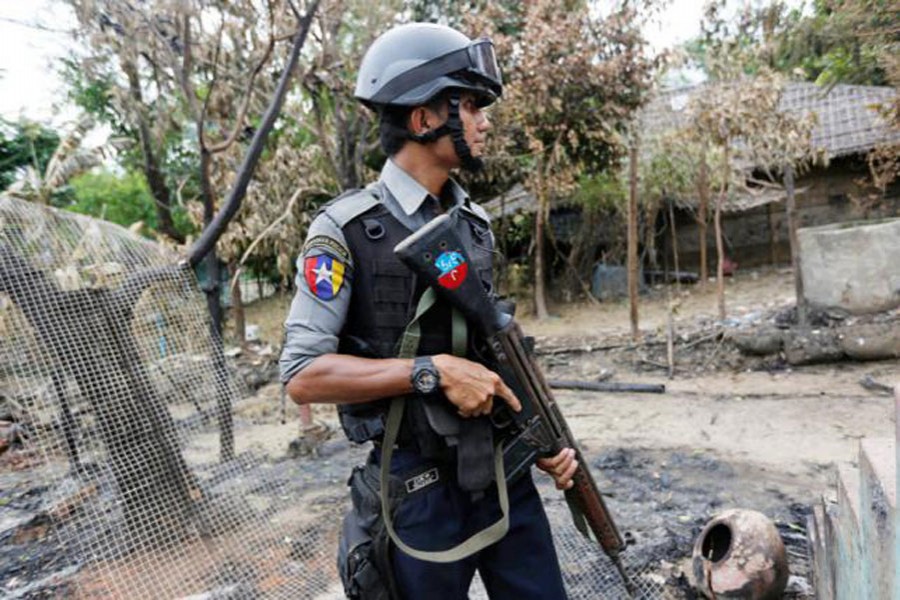European Union’s Foreign Affairs Council on Monday sought steps against senior military officials of the Myanmar armed forces responsible for serious and systematic human rights violations.
The council also sought measures for an extension of the existing embargo on arms and equipment which can be used for internal repression as well as options for its strengthening.
The Foreign Affairs Council ‘adopted conclusions’ on the situation in Myanmar, particularly in Rakhine State, which remains extremely serious, reports UNB.
“In view of the situation, the council invites in its conclusions the High Representative to make proposals without delay,” according to a document obtained from Brussels on Monday.
The EU High Representative for Foreign Affairs and Security Policy Federica Mogherini chaired the council, reports UNB.
The council condemned ongoing widespread, systematic grave human rights violations committed by Myanmar military and security forces, including rape and killings, and reiterates its condemnation of attacks by the Arakan Rohingya Salvation Army (ARSA) and other militant groups.
The EU also called upon Myanmar to address the issue of accountability and create conditions for voluntary, safe and dignified return of displaced persons to their places of origin.
The council reiterated its condemnation of attacks by the ARSA and other militant groups.
More than 680 000 people, mostly Rohingya, fled their homes in Rakhine and sought refuge in Bangladesh.
The EU commended Bangladesh for sheltering these people and will continue to provide humanitarian and other assistance, in line with its longstanding engagement and its pledges during the donor conference that it co-hosted in Geneva last year.
The EU stressed the importance of the roadmap established by the UNSC Presidential Statement of 6 November 2017 for the resolution of the crisis and will continue to raise the issue with the UN and key international stakeholders 4.
It welcomed the signing by the governments of Myanmar and Bangladesh of an ‘Arrangement on return of displaced persons from Rakhine’ on November 23, 2017 and of a ‘Physical arrangement for repatriation of displaced Myanmar residents from Bangladesh on January 16 as very important first steps to address the ongoing refugee crisis.
The EU invited both parties to fully associate the UNHCR with the process and allow independent monitoring in order to ensure an effective implementation of these arrangements in accordance with international law.
It said the government of Myanmar/Burma should carry out a rigorous needs assessment in Rakhine State and establish a time-bound Action Plan regarding the full implementation of the recommendations of the Advisory Commission on Rakhine to improve the living conditions and human rights situation there, including addressing the issue of physical security, statelessness and discrimination against the Rohingya.
Returnees' access to appropriate shelter, services and livelihoods is crucial, along with providing proper rehabilitation for victims, in particular children and women and will require easing of the current restrictions on Rakhine.
The EU called on the government of Myanmar and the security forces to ensure that security, the rule of law and accountability prevail in Rakhine, Kachin and Shan States.


